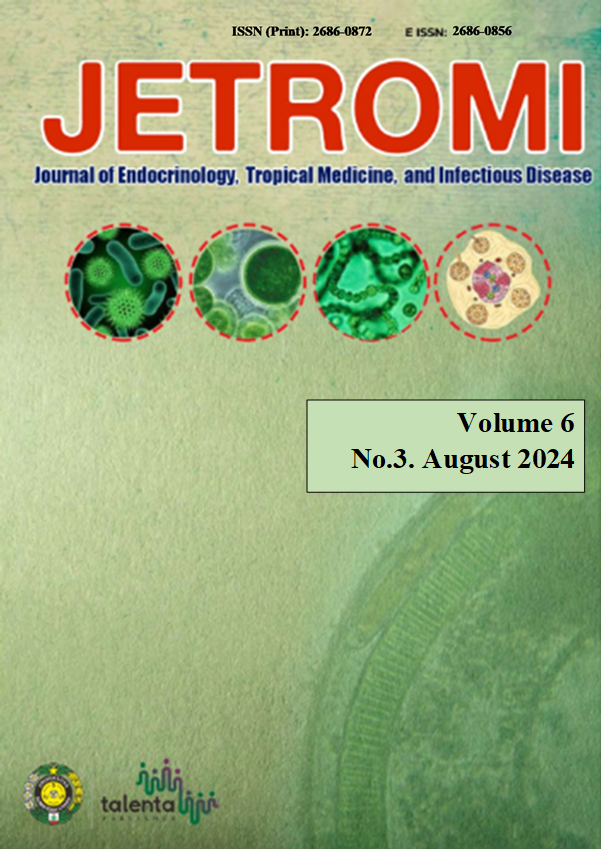The Relationship between Body Mass Index (BMI) and Degree of Hypertension in Hypertensive Patients
DOI:
https://doi.org/10.32734/jetromi.v6i3.14965Keywords:
Body Mass Index; BMI; degree of hypertensionAbstract
Background: Hypertension is a global health problem that attacks 1.28 billion adults aged 30-79 years. Hypertension is a chronic disease characterized by an increase in systolic blood pressure ≥140 mmHg and/or diastolic ≥ 90 mmHg. Calculation of Body Mass Index (BMI) is a method for determining nutritional status in adults. An increase in the BMI value is followed by an increase in blood pressure, thus increasing the chance of developing hypertension as well as the degree of hypertension. This study aims to determine the relationship between BMI and the degree of hypertension in hypertensive sufferers at Prof. Chairuddin P. Lubis Hospital Medan.
Method: This research uses a cross-sectional design and descriptive-analytical research methods. The samples for this study are 84 people obtained from secondary data of medical records and used simple random sampling techniques. The collected data is analyzed by a statistical program using the Fisher-Exact test with a significance level of p < 0.05.
Results: Most hypertension degrees are hypertension stage 2 and the classification of BMI is obese 1. There is a relationship between BMI and the degree of hypertension (p=0.02).
Conclusion: Most of the patients are hypertension stage 2 and obese 1. There is a relationship between BMI and hypertension in hypertensive patients. It means BMI is a risk factor for hypertension.
Â
Downloads
Downloads
Published
Issue
Section
License
Copyright (c) 2024 Journal of Endocrinology, Tropical Medicine, and Infectious Disease (JETROMI)

This work is licensed under a Creative Commons Attribution-NonCommercial-ShareAlike 4.0 International License.
The Authors submitting a manuscript do so on the understanding that if accepted for publication, copyright of the article shall be assigned to Journal of Endocrinology, Tropical Medicine and Infectious Diseases (JETROMI).
Copyright encompasses exclusive rights to reproduce and deliver the article in all form and media. The reproduction of any part of this journal, its storage in databases and its transmission by any form or media, will be allowed only with a written permission from Journal of Endocrinology, Tropical Medicine and Infectious Diseases (JETROMI).








